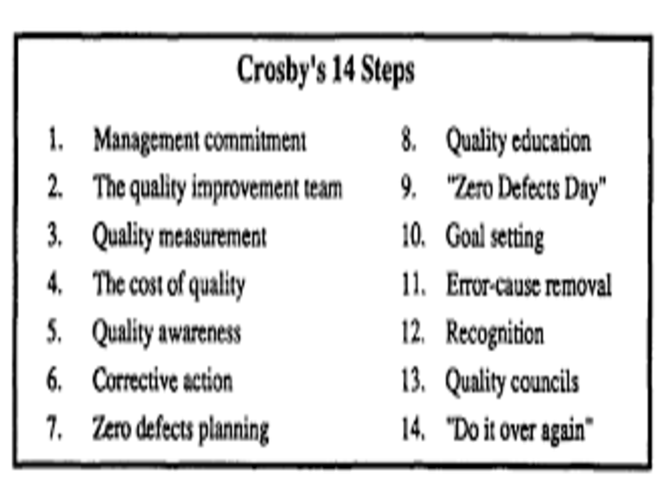About the project
This project is a study of quality gurus with a particular emphasis on Philip B. Crosby, the founder of the zero defects approach to quality management. The research questions addressed are: 1) How did Crosby's approach to quality management differ from those of other quality gurus, such as W. Edwards Deming and Joseph Juran? 2) How did Crosby's emphasis on leadership, employee involvement, and continuous improvement shape the way that organizations approach quality management today? 3) What lessons can be learned from Crosby's approach to quality management, and how can these lessons be applied in organizations today to improve the quality of products and services?
The study begins with an introduction to the background and importance of quality gurus in the field of quality management. It then provides an overview of Philip B. Crosby's career and his most influential book, "Quality Is Free." The study examines Crosby's philosophy of quality management, which is based on the idea that quality is the result of conformance to requirements and can only be achieved through prevention rather than inspection. Crosby's approach to quality management emphasized the importance of leadership, employee involvement, and continuous improvement, with a focus on prevention rather than detection and correction.
The literature review explores Crosby's ideas and principles, including his famous concept of "zero defects" and his emphasis on prevention. The study discusses Crosby's four absolutes of quality, which define quality as conformance to requirements, emphasize prevention, set a performance standard of zero defects, and measure quality as the price of non-conformance.
In response to the research questions, the study finds that Crosby's approach to quality management differed from those of other quality gurus in its emphasis on prevention rather than detection and correction. Crosby's focus on leadership, employee involvement, and continuous improvement has shaped the way that organizations approach quality management today. The study concludes that organizations can learn valuable lessons from Crosby's approach to quality management, including the importance of prevention, leadership, employee involvement, and continuous improvement, and that these lessons can be applied to improve the quality of products and services.
Pictures:
-
A picture of me at work
-
Crosby’s 14 steps to reach TQM
Project members
Andrej Gregorčič
About the client
Østfold University College
Faculty of Computer Sciences, Engineering and Economics
Department of Economics, Innovation and Society
Supervisor
Wu Hong, Høgskolen i Østfold




